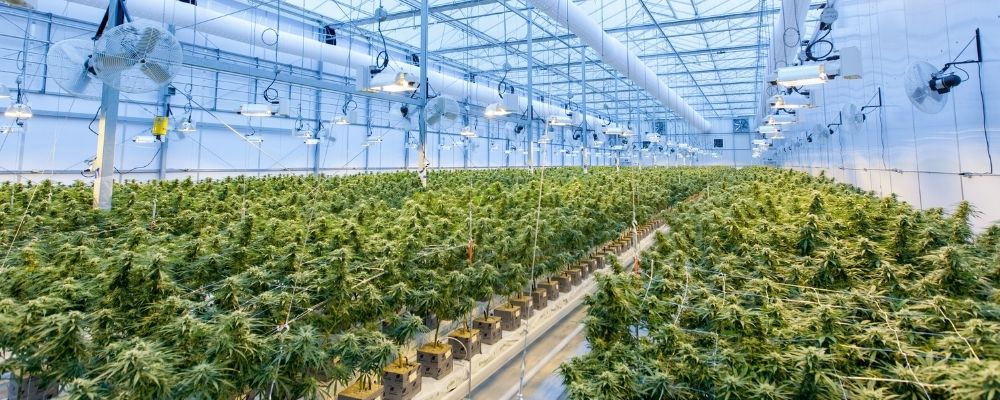The Australian cannabis industry is highly regulated but an emerging market with huge opportunities.
Australian Cannabis Industry
The Australian cannabis industry is growing. Not exponentially as its counterpart in the US, but definitely growing.
In this episode let’s look at the industry and its rules and regulations within Australia. And then in ep 297 let’s look at the US and what accountants bring to the table over there.
Brad Green, an Australian CPA specialising in the cannabis industry, will walk you through the legal framework and what the industry looks like at the moment in 2021.
Here is what we learned but please listen in as Brad explains all this much better than we ever could.
To listen while you drive, walk or work, just access the episode through a free podcast app on your mobile phone.
Australian Cannabis Industry
Growing cannabis in Australia for medicinal and scientific purposes is legal in Australia. And has been so since 24 February 2016.
But it took a while for things to get started and so the industry is still very much at the start.
Legal Framework
At the very top sits the United Nations Single Convention on Narcotics, but this won’t affect you. It is for our lawmakers to worry about.
Then there is the Narcotics Drugs Act about the criminal offence of growing, producing, manufacturing or trading Cannabis without the appropriate licence.
To CULTIVATE and PRODUCE cannabis in Australia legally, you need an ODC licence. ODC stands for Office of Drug Control, a federal government body.
To MANUFACTURE products from cannabis in Australia, you need a:
1 – ODC Licence (see above),
2 – Permission from your state or territory,
3 – GMP TGA Licence.
TGA stands for ‘Therapeutic Goods Administration‘. The TGA governs access and quality. GMP stands for the ‘Good Manufacturing Practice’ licence the TGA issues.
And then you just have to make sure that you sell your product to the right people who are authorised under the TGA, mainly licenced doctors and other medical professionals.
ODC and TGA
The ODC controls physical access to the drug, making sure that nothing gets into the illegal market. You need strong controls around security, staff and plants and multiple layers of security. If you can’t convince the ODC that your product is safe from third party access, you risk your ODC licence.
The TGA look after quality and access. Typically to manufacture you must have a GMP, which is a lengthy process to get.
The TGA also monitors the access to the drug to the extent they are unregistered drugs.
Medicinal Purpose
Cannabis contains THC and CBD. There are many more, but these two are the focus at the moment.
THC makes you high. While CBD helps with seizures, epilepsy and other ailments. It is CBD that paved the way for legalisation.
Cannabis Products
There are over 100 cannabis products legally available in Australia for medicinal use. They are mainly dried-flower products or oral oils containing delta-9-tetrahydrocannabinol or cannabidiol.
With one exception these are all unregistered drugs, so access requires approval under the TGA Special Access Scheme-B or Authorised Prescriber Scheme.
In 2019 1,400 GPs received 28,000 approvals to prescribe cannabis products.
Indoors
Where in Australia do you grow cannabis? You probably think of Queensland or North Queensland or along the Queensland coast, since Cannabis needs a warm climate with lots of water / rain.
But most of it is actually cultivated in greenhouses indoors to achieve the high quality required for medical cannabis. That way the atmospheric conditions can be monitored more closely. Another advantage is that you can have multiple harvests throughout the year (vs one main harvest for an outdoor grow).
Export
Different to the US, Australia has legalised the medicinal use of cannabis at federal level. This means that Australia can import and export cannabis for medicinal use.
The US is the other way around. It is heavily legalised at state level (with some exceptions), but not at federal level. Hence, you can’t move product between states or export in the US at the moment.
Capital Intensive
Growing and cultivation is less capital intensive than manufacturing. So you are more likely to find small scale operations among growers than among manufacturers.
But capital is often not the issue. The issue is getting the license and complying with ODC and TGA directives to produce quality consistent product with secured access.
MCIA
The MCIA (Medicinal Cannabis Industry Australia) is the industry organisation for Australia’s licensed medicinal cannabis industry. It is a good place to start to learn more.
This is a rough summary but please listen in since Brad Green explains all this in a lot more detail. In ep 297 we will look at what we as accountants can bring to the table in this emerging market.
MORE
Disclaimer: Tax Talks does not provide financial or tax advice. All information on Tax Talks is of a general nature only and might no longer be up to date or correct. You should seek professional accredited tax and financial advice when considering whether the information is suitable to your or your client’s circumstances.
